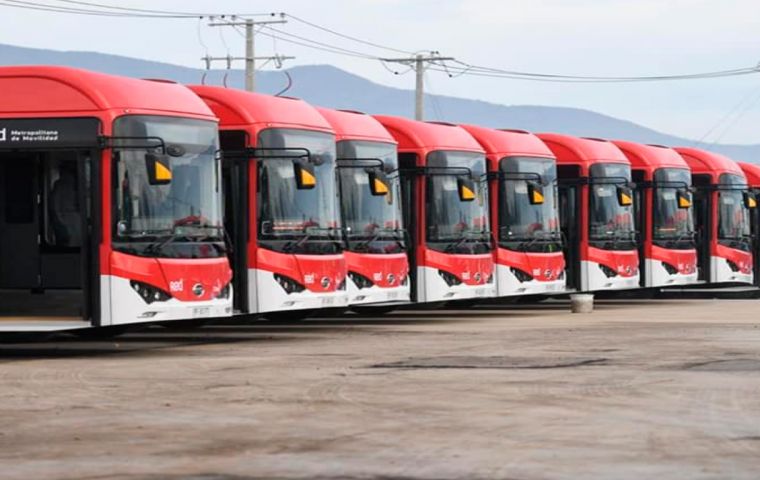MercoPress. South Atlantic News Agency
Santiago de Chile to expand fleet of electric buses
 Santiago de Chile continues to position itself at the forefront of urban public transport mobility, said Minister Muñoz
Santiago de Chile continues to position itself at the forefront of urban public transport mobility, said Minister Muñoz Chilean authorities are leading the region's transition towards environmentally friendly public transport networks by planning to replace some 214 diesel buses serving the Santiago Metropolitan area with electricity-powered ones in the short run, it was announced.
The Chinese-built units will thus increase the country's fleet to nearly 2,500, thus making Santiago the city with the largest number of these vehicles outside the Asian giant nation and constitute another milestone towards reducing emissions and improving air quality.
With this move, Santiago will be matching the environmental standards of places such as London and Hong Kong, known for their advanced mobility infrastructure, it was also explained.
The project is a combination of state policies with private technology companies. “Our city, Santiago de Chile, continues to position itself at the forefront of urban public transport mobility,” said Chilean Transport Minister Juan Carlos Muñoz regarding the purchase of these buses from Chinese manufacturers Yutong. Since 2018, Santiago received several batches of electric buses, consolidating its relationship with this Asian supplier.
The new units will operate in the communes of San Bernardo, El Bosque, La Pintana, and La Cisterna. The Santiago Metropolitan Mobility Network places Chile as the country with the largest fleet of electric buses in the world behind China, which represents a significant contribution to the fight against climate change.
The new double-decker buses are 12 meters long and 2.55 meters wide, with two passenger doors. They have 70 seats and a total capacity of 97 passengers. They have spaces for people with disabilities on the upper floor. Their charging time is 1.5 to 2 hours, and they include air conditioning, security cameras, USB ports, and wi-fi services. Each bus costs around US$ 560,000. They are already circulating in London, Mexico City, Singapore, and Hong Kong.



Top Comments
Disclaimer & comment rulesCommenting for this story is now closed.
If you have a Facebook account, become a fan and comment on our Facebook Page!